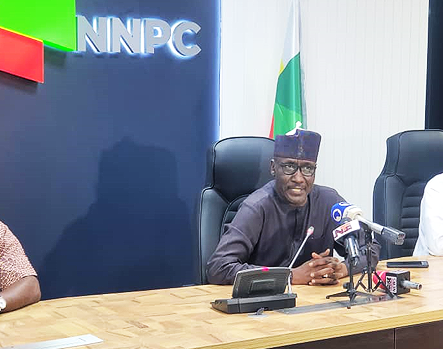The Nigerian National Petroleum Company Limited (NNPCL) has committed to supplying 272,500 barrels of crude oil per day to repay a series of crude-for-loan deals amounting to $8.86 billion. This translates to roughly 8.17 million barrels of crude oil per month earmarked for various loan repayments, according to an analysis of reports from the Nigeria Extractive Industries Transparency Initiative (NEITI) and NNPCL’s financial statements.
NNPCL has already repaid $2.61 billion, about 29.4% of the total loan, leaving $6.25 billion outstanding. Of the total loan facility, $6.97 billion has been received so far across seven crude-for-loan agreements.
Key projects tied to these deals include Project Panther, a $1.4 billion joint venture with Chevron Nigeria Limited, where 23,500 barrels per day (bpd) are pledged for repayment. Another significant project, Project Bison, saw NNPCL acquire a 7.25% equity stake in the Dangote Refinery, backed by a $1.04 billion loan from Afrexim Bank, now fully repaid.
Other notable arrangements include the Eagle Export Funding deals, under which NNPCL secured three loans totaling over $2.47 billion. These loans have varying repayment schedules tied to oil sales, with portions fully repaid by 2023, and others set to mature by 2028.
Project Yield, designed to support the Port Harcourt Refining Company, involves a $950 million loan, with 67,000 bpd pledged for repayment. Although repayment is due to start by the end of 2023, the refinery is yet to begin fuel production despite repeated delays.
Another prominent agreement, Project Gazelle, aims to stabilize Nigeria’s foreign exchange market. NNPCL secured a $3 billion forward sale agreement in December 2023, pledging 90,000 bpd to settle future tax and royalty obligations. As of the end of 2023, $2.25 billion had been drawn from this deal, with repayments starting mid-2024.
These crude-for-loan deals come at a time when Nigeria’s oil production has hit a decade low. The NEITI 2022-2023 report revealed that crude oil output declined to 490.94 million barrels in 2022, down from a peak of 798.54 million barrels in 2014. While production improved slightly to 537.57 million barrels in 2023, it still remains well below capacity.
Challenges like production deferments, unscheduled maintenance, and oil theft continue to hamper the sector. In 2023 alone, Nigeria deferred 110.66 million barrels of crude oil, with 5.25 million barrels lost to oil theft and sabotage.
Meanwhile, the House of Representatives Special Joint Committee has instructed NNPCL to halt further crude-for-loan agreements, following reports of the company’s plans to borrow an additional $2 billion to clear a $6 billion debt backlog owed to international oil traders.
NNPCL’s Group Chief Executive Officer, Mele Kyari, confirmed ongoing discussions for another oil-backed loan tied to 30,000-35,000 bpd of crude production but did not disclose the amount being sought. Nigeria’s oil exports play a crucial role in stabilizing the nation’s foreign exchange reserves, but underinvestment and fuel subsidies have strained resources in recent years.
NNPCL has also secured a $3.3 billion emergency loan from the African Export-Import Bank as part of efforts to stabilize Nigeria’s economy, using future crude sales as collateral to meet dollar obligations and stabilize the exchange rate.
Despite efforts to streamline oil-backed financing, Nigeria’s oil sector remains challenged by persistent operational inefficiencies and production shortfalls.
























